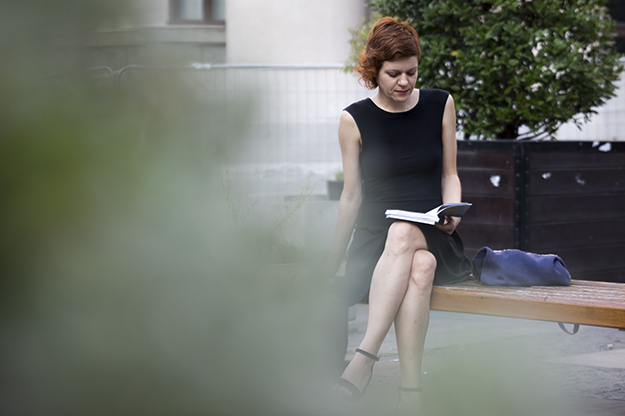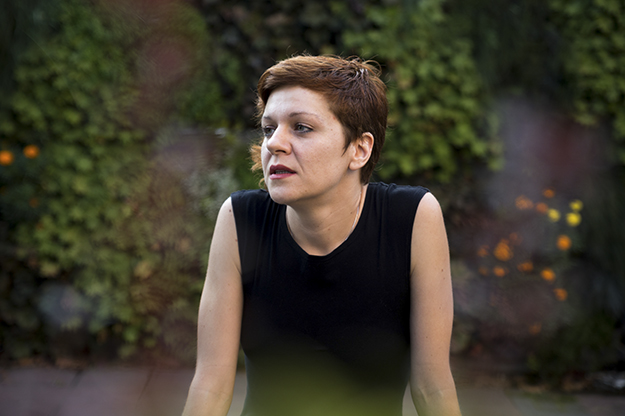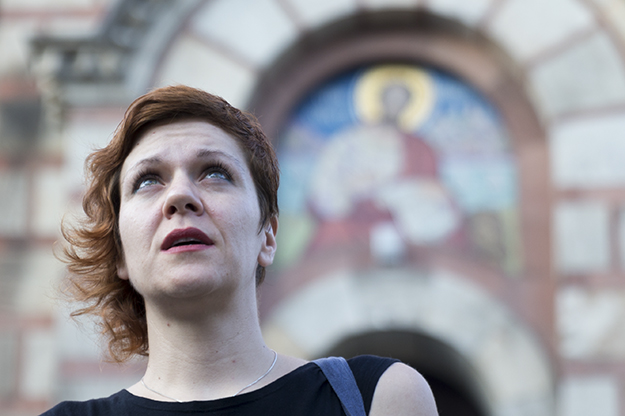In the field of global feminism, the year 2017 will be remembered for the #MeToo movement.
The initiative, established in the U.S. in the wake of the Harvey Weinstein scandal — in which the famous filmmaker is accused of sexually assaulting and harassing dozens of women — expanded to other countries, leading hundreds of thousands of women to publicly say “me too” (I’m a harassment victim), all in order to point out that sexual violence is a widespread and serious problem. Time magazine declared the “me too” movement, or rather those who “broke the silence,” as its person of the year.
Even though “Me too” also reached the Balkans, countries here still also face different battles. The right to abortions, the representation of women in decision-making positions, the presence of women in politics and violence against women are only some of the topics highlighted by feminist activists throughout the Balkans.
In a series of One-on-one interviews, K2.0 has spoken with some of the most prominent feminists across the region about the development and current state of feminism in their respective countries and the biggest feminist issues being faced.
In Belgrade, K2.0 spoke to Adriana Zaharijević, a researcher at the Institute for Philosophy and Social Theory, University of Belgrade, and author of more than 60 articles and two books, focusing on political philosophy, feminist theory and social history. For K2.0, she talks about the development of feminism in Serbia, violence against women, and gender roles today.

Photo: Lazara Marinkovic / K2.0,
K2.0: In the past few months in Croatia we have witnessed the mobilization of conservative associations and individuals against the ratification of the Istanbul Convention, the Council of Europe convention against violence against women and domestic violence that was signed in 2011. What battles are fought for women’s rights in Serbia these days and in what fields are women the most vulnerable?
Adriana Zaharijević: I would say that the general situation in Serbian society is more conservative. Unlike Croatia, where organized forces exist, both in terms of individuals and organizations that are extremely present in the public and contribute to its shape, there are no such associations in Serbia, or they are still very marginal.
There are indeed certain academic figures who systematically articulate an anti-gender ideology on different portals and in some newspapers, but their voices are relatively lonely and with no structured direct influence on decision making.
In Serbia there is an ongoing discussion about the birth rate increase, which we can certainly see as an extremely reactionary point. However, just as in many similar cases, we here also see the typical Serbian rhetoric of intimidation and patronization. Conventions are ratified without thinking, following directives from above, and conservative policies are articulated in a similar manner — too often with much ado about nothing. In other words, even though we ratified the Istanbul Convention a while ago, violence against women has not decreased, quite the contrary.
Meanwhile, the president’s logorrheic speech on the increase of birth rates amounts to a rhetorical combination of threats with different imaginary enemies, fantasies of the state’s power to allocate unimaginable amounts for non-existent children and bad tricks used to underestimate the common sense of citizens.
You mentioned that violence has not died down. The Convention postulates that sanctioning and processing cases of violence against women and domestic violence must be dealt with. What is the current state of affairs in Serbia in regard to this issue?
The state of affairs is alarming. In the past few years, more than 200 women have been killed in cases of domestic violence. Although Serbia ratified the Istanbul Convention a long time ago — without any fuss around the concept of gender — and despite the fact that femicide is a topic discussed in the public, this is sometimes done in a gruesome, perfidious way, almost in the manner of “reality programs” as in the case of Jelena Marjanović [a Serbian folk singer, whose murder in 2016, as well as the investigation that followed, became the main news in tabloids, especially after her husband, who in the meantime had become part of a reality show on TV Pink, was accused of her murder].
The future seems dark. Serbia is a country in which violence is constantly on the rise, and violence against women is its striking form. This is linked to the problem we talked about so far. In one text I claimed that we live in a country that has never faced its war past, in a country characterized by the deepest structural inequality which has not been a part of our very recent history, and a country where political violence against the common sense of the citizens is generated on a daily level. This leaves traces in all aspects of life.
You have mentioned discussions on birth rates — recently, a statement by Patriarch Irinej about how women are obliged to have children raised a lot of dust in the media. How should the Orthodox Church’s role be seen in the discourse of women’s rights? Are these isolated attacks, and can we speak about a more harmful and long-lasting influence?
The Serbian Orthodox Church has not changed its role since the ’90s. In this field, it is very consistent. However, it seems that the public importance of the Serbian Orthodox Church is far smaller than before. There are many highly problematic acts within the church, from violence to drug dealing and sexual molestation of children, hence there is the famous case of Bishop Pahomije, accused of the sexual molestation of four divines in the famous Pahomije Affair. [In two out of four cases, he was acquitted for lack of evidence, whereas the other two cases became obsolete].
These type of affairs have put the church officials alongside other ‘controversial characters’ on the pages of black chronicles [sensationalist crime sections of newspapers], and present them in a very dark light.
Also, the representatives of the church who dare to express somewhat more liberal attitudes are harshly silenced. Last year, in the course of a short-term affair about the backward petition on the revision of Darwin’s theory in schools, a few teachers from the Orthodox Theological Faculty got involved in the public discussion, issuing a call against such attitudes [to abandon the teaching of Darwin’s theory of evolution]. Their reaction was immediately suppressed and the public was informed that due to their dissent their parish services had been terminated.
How vibrant is the feminist scene in Serbia? To what extent is it organized, and in what way, for example, through associations, high profile individual activists, the academic community, etc.? What are the main ideas, thoughts, and struggles in this feminist/activist space?
The feminist scene exists and maintains a certain tradition that is primarily anti-militarist, anti-nationalist, and more recently, anti-capitalist. In February this year, a four-day conference on the current state of feminist theory in Serbia was held in Belgrade, which pretty thoroughly represented the work of women — and men — of different generations in this widely defined field, showing great diversity of content and thought processes.
There are different interesting and important initiatives that are incentivizing young feminists, among which is a feminist section as part of Ne da(vi)mo Beograd [the protest movement, Don’t Let Belgrade D(r)own].

Photo: Lazara Marinkovic / K2.0.
In what ways have the peace/anti-war movements of the early ’90s shaped today’s feminism in Serbia? Is this movement shaped by the war in a way that was historically unique?
I agree with you on this, but I would insist that this region is characterized by several historical specificities. The first one is the unique development of an ‘Eastern feminism’ in Yugoslavia, a feminism developed in socialism. The second one is the anti-war politics, which had a deep impact on our understanding of identity politics, of cross-border solidarity, and a critical stance not only towards patriarchy but toward the state and nation as well, and on the ambivalent attitude toward the past.
This differed from the parallel events in other Eastern countries in which feminists embraced the democratic transition into liberalism and capitalism after the fall of the [Iron] Curtain with more ease — here, the critical stance toward socialism, but also democracy won through war, has long been much more ambivalent. The third is, finally, an all too late a reaction to transition, whose lateness has been certainly induced by our having to face some more important things — the war and war-torn lives, with which this state has never truly dealt.
As part of feminist theories and movements in Serbia, how much are the issues concerning not only women but the society as a whole, such as workers’ rights, unionism, etc., actually discussed? I.e. topics that were very important in socialism. In this sense, has there been a break from the ‘socialist feminism’? Also, what is the connection between feminist movements and the LGBTQ movement?
I would like to say something about the nature of Yugoslav feminism before the collapse of Yugoslavia, and with it to point in two directions. First, I find it extremely important to emphasize the presence and peculiar development of feminism in socialism, a particularly Yugoslav phenomenon we now tend to consign to oblivion.
Also, although Belgrade was, without a doubt, the place where feminist ideas flourished, alongside Zagreb and Ljubljana, I would insist that in Yugoslavia there was no such thing as Serbian feminism. I believe this to be important for the posterior phases of the development of feminism in Serbia, which has only recently begun to work on discovering its roots in the 19th and the early 20th centuries — that is, before the common state had been created.
Bearing in mind that since the dominant paradigm in the 1990s was mainly anti-war and anti-nationalist, feminism was, politically, in an open conflict with the nation and, for a long time, with the state, and it tended to resist localisms in theoretical terms too. I’m not evaluating whether that was good or not, I’m just pointing to the context that became exposed to change only in the last few years, maybe with a generation that grew up after the economic crisis [in 2008] and in the state reduced to Serbia only [from 2006]. As a quick reminder, many of us have lived in as many as four different state-formations….
The anti-war paradigm was in a sense replaced by the ‘transitional’ paradigm, which has, especially after the 2008 crisis, sought some recourse in socialism. Thus, perhaps it would be most accurate to say that there were never clear breaks, but also neither were there extremely violent returns to the socialist tradition, with the exception of the reevaluation of the work of AFŽ [Antifašistički front žena, the Women’s Anti-fascist Front, a World War II era movement], which is a trend common to feminist movements in all Yugoslav successor states. On the other hand, the link between the feminist and LGBTQ movement from the very start was strong and pretty unquestionable.
For the first time in history, Serbia has a woman prime minister, however she does not belong to the progressive political current. In what ways does this shape the image of women in politics and the relationship with women’s rights in Serbian society?
It is truly interesting to see the extent to which women who are engaged in politics often come from the parties that we, as feminists, would hardly support, since they represent policies that prevent, not advance the emancipation of society — even when they bear ‘progressiveness’ in their names. Since I believe in feminism that demands a thorough reevaluation of social structures for the world we live in to be a more livable place for all of us, I don’t think that merely being a woman is enough for a politics that can enact such a reevaluation.

Photo: Lazara Marinkovic / K2.0.
As for the younger population of women, do they tend to stigmatize ‘feminism,’ such as by rejecting the idea of presenting themselves as feminists? Does this word cause divisions, and does it have negative — or any — connotations?
No less or more than the usual. Feminism is the standard bugbear. And still, instead of lamenting over it, I would rather be joyful because it seems that now, more than ever, there are a large number of women who feel comfortable with feminism, and recognize its struggle as their own.
Finally, ‘Balkan men’ are often described as being ‘macho’ — they are strong, they don’t express emotions, they have the control… Is this still the model of power in Serbia, or has this image of men and the expectations that they have of themselves — and that others have of them — changed?
In recent times, there has been an ever-increasing tendency to think about the position of men in this society, above all under the influence of the work of [sociologist and gender expert] Marina Blagojević, even though we should not forget that [anthropologist and feminist theorist] Žarana Papić had already dealt with this topic in the early ’90s, though only to a small extent.
It is common ground that after the fall of socialism the so-called repatriarchalization of society took place, and this phenomenon has long been viewed exclusively from the perspective of changes that impacted women. It seems to me that today we became far more conscious about the fact that petrified stereotypes cannot remain untouched; this means it is necessary to see how gender identities were formed within socialism, what survived from the era that had preceded it, and what has changed with social emancipation.
Also, in conditions where the population generally lives in a precarious situation, repatriarchalization faces an uncertain future, bearing in mind the simple fact that the most secure family income comes from pensions [from socialist times]. Whatever the stereotypes — a macho breadwinner and a meek housewife — the price of their maintenance has nowadays become too high.
This is the third one-on-one interview in our ‘Talking Balkan Feminism’ series on the position of feminism in the region. Check back next week for another interview with a leading feminist from the Western Balkans.
This conversation has been edited for length and clarity. The interview was conducted in Serbian.
Feature image: Lazara Marinković / K2.0.




